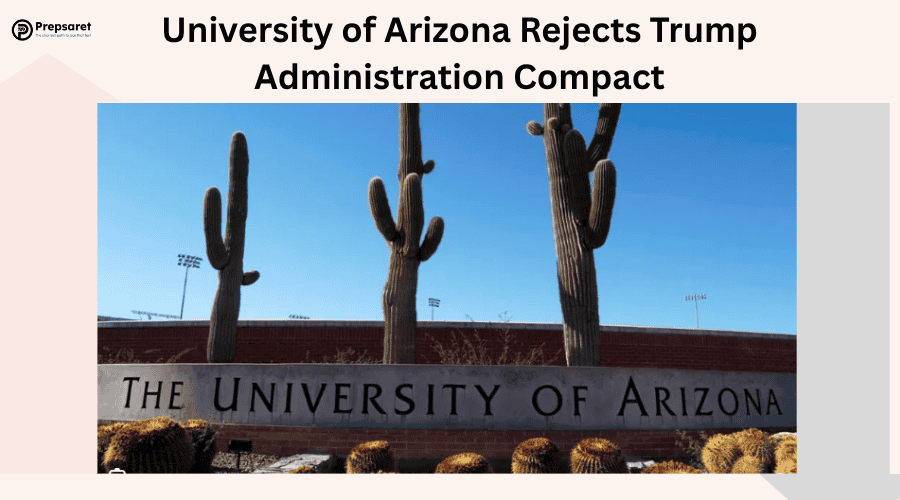Key Points:
- The University of Arizona became the seventh institution to reject the Trump administration’s “Compact for Academic Excellence in Higher Education.”
- The proposal offered preferential federal funding in exchange for adopting specific policy commitments.
- The university reaffirmed its dedication to academic freedom, merit-based research funding, and institutional independence.
Arizona Stands Firm on Academic Principles
The University of Arizona on Monday declined to sign a Trump administration compact that would have granted nine elite universities preferential federal funding in exchange for agreeing to a series of policy directives.
Citing “academic freedom” and “institutional independence,” University President Suresh Garimella said the university already upholds many of the principles outlined in the proposal and has submitted its own “statement of principles” to the U.S. Department of Education instead.
The compact, titled the Compact for Academic Excellence in Higher Education, required universities to commit to disregarding race and sex in admissions and hiring, limit international students to no more than 15 percent of undergraduates, and ensure ideological balance on campuses.
The University of Arizona, however, argued that its policies already reflect a commitment to fairness, inclusion, and open inquiry, without needing to align with externally imposed conditions tied to funding.
Growing Rejection Across Elite Universities
Arizona’s decision makes it the seventh of nine institutions to reject the proposal. Brown University, the Massachusetts Institute of Technology (MIT), the University of Southern California, the University of Pennsylvania, the University of Virginia, and Dartmouth College had previously declined to sign.
As of the Monday deadline, only Vanderbilt University and the University of Texas at Austin had yet to announce their positions. The Trump administration framed the compact as an effort to reform higher education, arguing that universities have become overly politicized.
Since taking office, the administration has targeted institutions it viewed as liberal-leaning, attempting to withhold or redirect federal funding over issues such as diversity, climate initiatives, and campus protests. Courts have since overturned many of these funding cuts.
Critics, including the American Federation of Teachers (AFT) and the American Association of University Professors (AAUP), denounced the compact as politically motivated. The AFT described it as “favoritism, patronage, and bribery in exchange for allegiance to a partisan ideological agenda.”
In his statement, President Garimella acknowledged that while “some recommendations deserve thoughtful consideration,” the University of Arizona remains committed to its foundational principles of merit-based research funding and independent governance — values it says are essential to protecting the integrity of American higher education.
Also Read:

